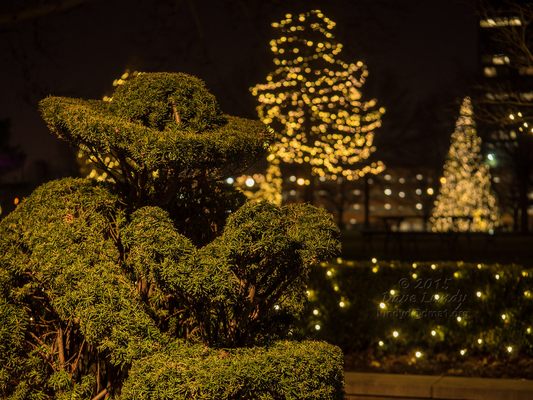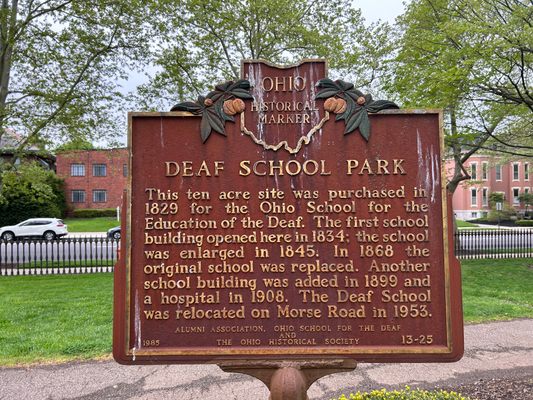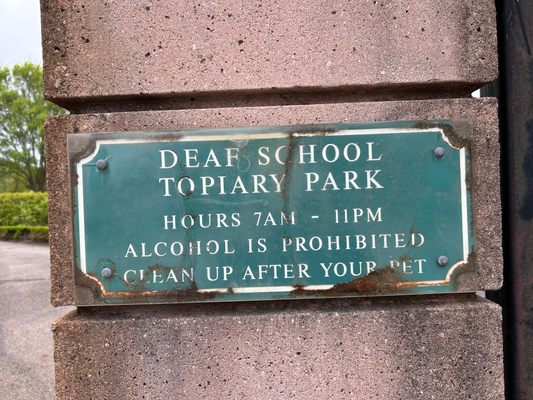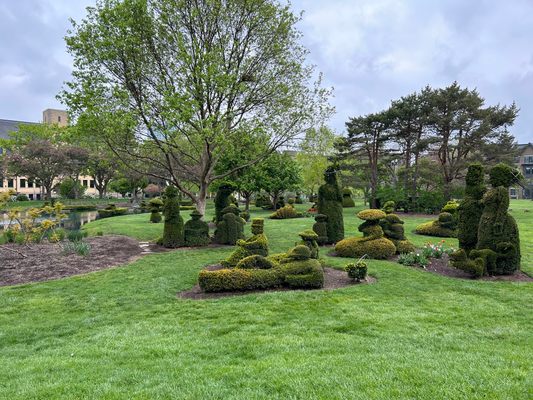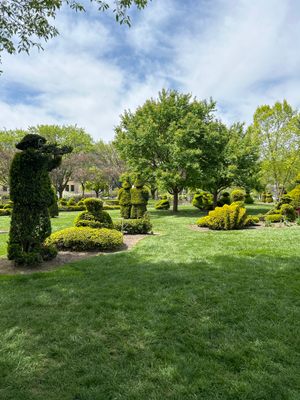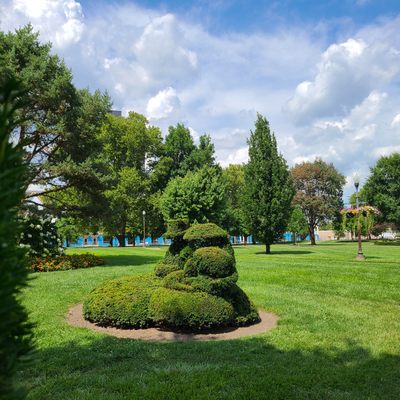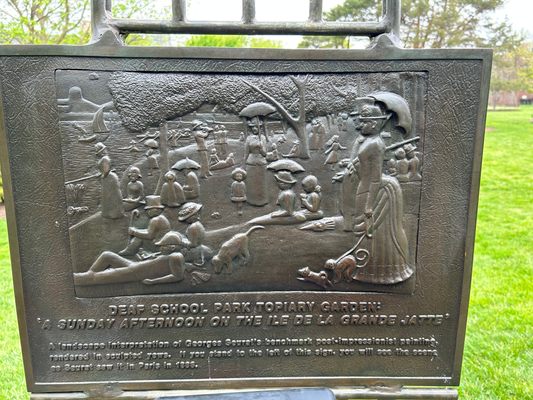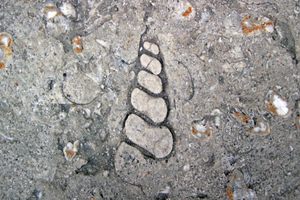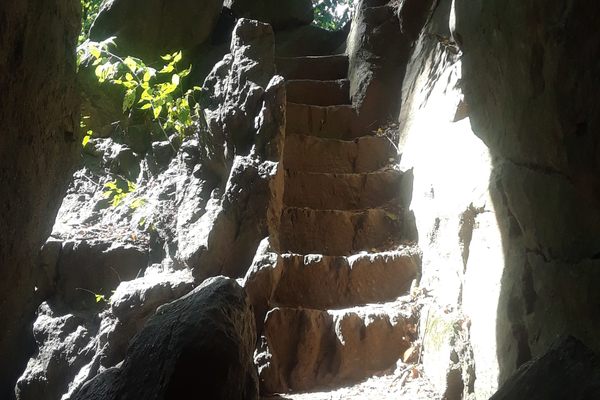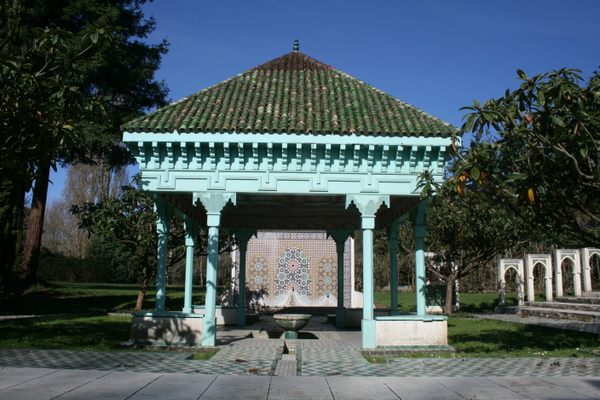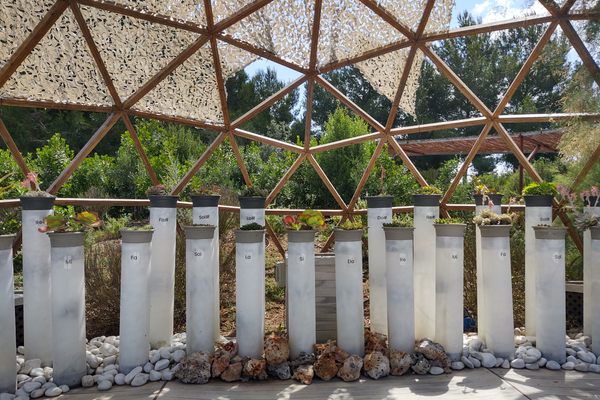About
If you like post-impressionist painting, landscape architecture, gardening, horticulture, Ferris Bueller’s Day Off, or just things that look like other things, then you’ll love Topiary Park.
Located in downtown Columbus, the seven-acre Topiary Park is, well, a topiary park that fully recreates the scene depicted in Georges Seurat’s famous painting A Sunday Afternoon on the Island of La Grande Jatte. The unique project was the brainchild of Columbus sculptor James T. Mason, who had the idea when his then-wife Elaine asked him to make a topiary sculpture for their backyard. Ultimately spiraling well beyond backyard-project scale, the couple pitched the idea to the city of Columbus, and work on the installation began in 1989 with the creation of artificial hills and the digging of a pond to stand in for the River Seine. James shaped the bronze frames and planted the associated greenery, and Elaine served as the original topiarist.
The site selected for the park had previously been the home of the Ohio School for the Deaf, which was founded in the 19th century and was, at the time, one of only five such institutions in the United States. The school grew so rapidly that by 1953 it had outgrown its constrained downtown location and moved to a larger property in the city’s North Side. The original buildings remained intact, though abandoned and decaying as the surrounding neighborhood went through a period of decline in the ensuing decades. A community revival in the late 1970s saw efforts to preserve and landmark the school buildings, but a suspicious fire in 1981 destroyed all but one of them, which was finally designated a historic site in 1982. The rest of the newly vacant property was turned into a park which is today still officially known as Old Deaf School Park, but has come to be known popularly as Topiary Park.
The art installation was officially dedicated in 1992 and consists of 54 people, eight boats, three dogs, a monkey, and a cat, all in the form of topiary sculptures made of yew trees. Visitors can take in this peculiar garden from a bronze plaque that marks the point-of-view of the original painting, or wander among the living sculptures, joining them in their picnicking, sunbathing, and general reverie. Topiary Park is — fairly specifically, and somewhat surprisingly — the only topiary representation of a painting in the world.
Related Tags
Community Contributors
Added By
Edited By
Published
March 16, 2016







